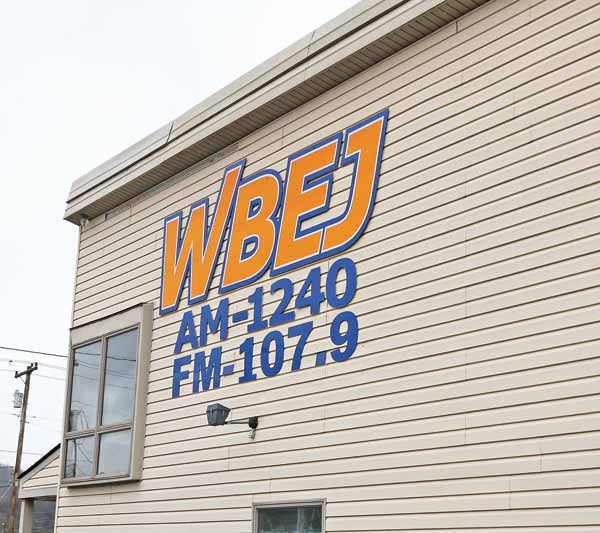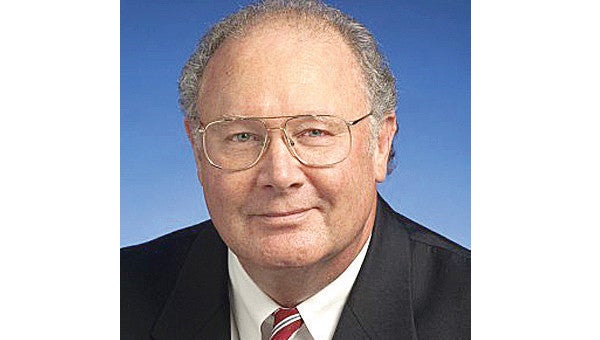Blountville broadcaster buying WBEJ
Published 12:12 pm Wednesday, January 31, 2024
|
Getting your Trinity Audio player ready...
|
By Buzz Trexler
Star Correspondent
Long-running Elizabethton AM radio station WBEJ 1240 will soon have a new owner for the first time in almost 42 years: The city’s only AM radio station is being sold to Kenneth C. Hill of Blountville, pending approval from the Federal Communications Commission.
Hill is involved in the ownership of more than 20 other radio stations, a mixture of nonprofit and for-profit primary stations and related FM transmitter stations. He also is awaiting FCC approval for the sale of another station to a corporation formed, in part, by his two sons, current state Rep. Timothy Hill and former state representative Matthew Hill.
According to documents filed with the FCC, CB Radio Inc. has agreed to sell WBEJ’s assets for $370,000. The assets cited in the sale include its related FM translator station, broadcasting on 107.9; the FCC licenses, which expire Oct. 1, 2027; the antenna tower and ground system; the property underlying the transmitter site, located east of Bradley Street; and the property where the studio and offices are located, at 510 Broad St. The agreement was signed on Dec. 28, 2023, by CB Radio President Patricia Crisp, sole owner of the station, and Hill, who deposited $18,500 in escrow.
The sale of the stations depends upon FCC approval, and closing would take place within five business days afterward. If government approval is not given by June 30, either party has the right to terminate the agreement. WBEJ gave public notice of the sale on its website, WBEJ.com.
According to the website, the station first went on the air on July 18, 1946, under the ownership of Elizabethton Broadcasting Co., formed by Robert W. Rounsaville and George M. Clark. WBEJ Inc. purchased the station in 1956 and sold it to CB Radio Inc. in 1982.
Neither Kenneth Hill nor Crisp responded to requests for comment.
About Kenneth C. Hill
Hill has served as a commissioner on the Tennessee Public Utility Commission since his appointment by Lt. Gov. Ron Ramsey in 2009 and once served as chairman.
Through ownership or other corporate relationships, Hill is connected to 21 other stations, including WETB, 790 AM, and its related translator broadcasting at 93.7 FM, both in Johnson City. He is also the manager and 100% equity owner of WMCH Radio LLC, licensee of the translator station broadcasting at 100.3 FM in Spurgeon.
FCC documents show Hill is president and one of six directors of the nonprofit Appalachian Educational Communication Corp. in Blountville, which “provides Christian instruction to the region through radio broadcasting,” according to its 2022 IRS Form 990. The document shows revenues of $579,813 in 2021 and $641,894 in 2022. As president, Hill received a salary of $53,000, while his wife, Janet Hill, the only other paid director, received a salary of $36,572.
AECC, which first registered with the Tennessee Secretary of State in 1981, is the licensee of seven stations and holds the permits for seven other noncommercial FM educational stations in Tennessee, Virginia, Illinois, Indiana and Kentucky.
Documents filed with the FCC also show AECC, the nonprofit, holds 49% shareholder interest in Information Communications Corp., a for-profit corporation of which Hill is president, director, and 51% shareholder. The Bluff City corporation registered with the state in 1995 and holds licenses for three commercial AM stations and a related FM translator station in the Tri-Cities market. The sale of two of those stations in Abingdon, Va., is pending FCC approval.
On Oct. 16, 2023, ICC agreed to the sale of WABN, 1230 AM, and its related FM translator station broadcasting at 104.1 FM in Abingdon, to Broadcast Partners LLC for $75,000, with no escrow involved. The company registered with the state of Tennessee on Sept. 26, 2023, and holds no other broadcast license.
According to the FCC, “Translator stations simultaneously rebroadcast the signal of a primary AM or FM station on a different frequency. Those translator stations that provide service within the primary station’s protected service area are classified as ‘fill-in’ stations. Fill-in translators can be owned by the main station or by an independent entity. Commercial non-fill-in translators are generally owned by independent entities, with certain exceptions, while noncommercial educational non-fill-in translator stations are generally owned by the primary station being rebroadcast.”






